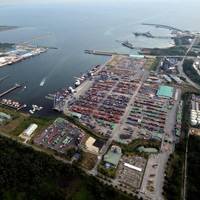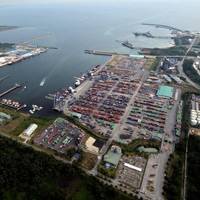Case Study: Samalaju Port’s New Bulk Handling Facilities

Paul Charlton, Managing Director of BMT WBM’s Machinery Group discusses the new bulk handling facilities being built at Samalaju Port in East Malaysia. In its efforts to efficiently service the anticipated increase in cargo which will be generated by industries relocating to the Sarawak Corridor of Renewable Energy (SCORE), Bintulu Port Holdings Bhd, a Malaysian government-linked company, is investing approximately RM1.89 billion ($500 million USD) in the emerging port of Samalaju in East Malaysia.
BMT Supports Samalaju Port Development

BMT subsidiaries in the Asia-Pacific region have been awarded a contract to provide design expertise for an advanced bulk-material handling system for the emerging port of Samalaju in East Malaysia. Samalaju Port is being developed by Bintulu Port Holdings Bhd as part of the Sarawak Corridor of Renewable Energy at an investment of approximately $550 million. Companies involved in silicon, manganese, aluminium, ferroalloy, phosphate and coke processing have been drawn to the area to benefit from the cheap energy available.
Bintulu Port Holdings To Offer New Shares
Malaysia's Bintulu Port Holdings, which runs the nation's largest LNG port, plans to offer 100 million new shares to raise at least 400 million ringgit ($105.2 million) under its IPO. It was reported that 40 million of the shares will be offered to the public and 60 million will be placed with private investors who will include foreigners. The managing underwriter for Bintulu Port's listing, Commerce International Merchant Bankers (CIMB), is confident its IPO will be well received by investors. "The port itself is an attractive investment proposition," said a CIMB official. Bintulu port handled 23.6 million tons of cargo from the time it began operations in 1993 until last year. Of this amount, LNG accounted for 64 percent of its total throughput handled and 81.5 percent of total revenue.







